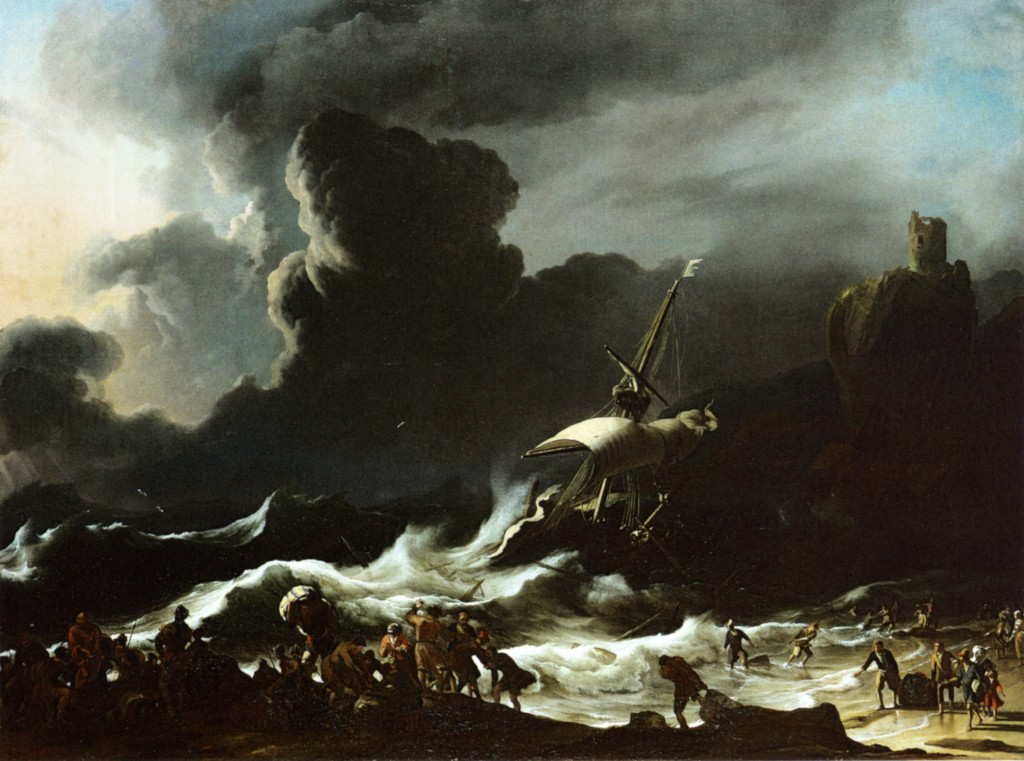Recently, I heard a spiritual person say something I heard in the past. He said, "God does not punish us when we are suffering. Suffering is not from God."
God does not cause suffering, this is true, but that God allows it must be seen as part of punishment.
Yes, God does punish us and we should be glad of this punishment.
I am losing a good spiritual director I found here as he is moving away for the rest of the time I shall be here. I have lost spiritual directors before through moves on their part or mine. I am beginning to realize that losing a spiritual director, or not being able to find one, is part of God's plan for those of us in the desert.
Not being able to talk with someone about spiritual things is a punishment. But, the saints have something to say about this point of punishment. They tell us that punishment now on this earth is better than purgatory or damnation. I do not think people ponder about going to hell enough. Many, if not most, people will go to hell. This fact will happen not because God does not love us, but because too many people do not love God enough to ask Him to show us our deep, secret sins.
Going into silence and the desert which God gives us give us opportunities to see the predominant faults and get rid of these.
When the Second Person of the Blessed Trinity became Man, He entered into a life of suffering, not for His sake, but for our sake. He took on our punishment which was eternal separation from God because of the sin of Adam. When Christ, Mary and Joseph suffered, they entered into redemptive suffering for us.
St. Alphonsus wisely summarizes suffering for perfection in this way:
We ought to view in the light of God’s holy will, the loss of persons who are helpful to us in a spiritual or material way. Pious souls often fail in this respect by not being resigned to the dispositions of God’s holy will. Our sanctification comes fundamentally and essentially from God, not from spiritual directors. When God sends us a spiritual director, he wishes us to use him for our spiritual profit; but if he takes him away, he wants us to remain calm and unperturbed and to increase our confidence in his goodness by saying to him: “Lord, thou hast given me this help and now thou dost take it away. Blessed be thy holy will! I beg thee, teach me what I must do to serve thee.”
In this manner too, we should receive whatever other crosses God sends us. “But,” you reply, “these sufferings are really punishments.” The answer to that remark is: Are not the punishments God sends us in this life also graces and benefits? Our offenses against God must be atoned for somehow, either in this life or in the next. Hence we should all make St. Augustine’s prayer our own: “Lord, here cut, here burn and spare me not, but spare me in eternity!” Let us say with Job: “Let this be my comfort, that afflicting me with sorrow, he spare not67.” Having merited hell for our sins, we should be consoled that God chastises us in this life, and animate ourselves to look upon such treatment as a pledge that God wishes to spare us in the next. When God sends us punishments let us say with the high-priest Heli: “It is the Lord, let him do what is good in his sight.”
The time of spiritual desolation is also a time for being resigned. When a soul begins to cultivate the spiritual life, God usually showers his consolations upon her to wean her away from the world; but when he sees her making solid progress, he withdraws his hand to test her and to see if she will love and serve him without the reward of sensible consolations. “In this life,” as St. Teresa used to say, “our lot is not to enjoy God, but to do his holy will.” And again, “Love of God does not consist in experiencing his tendernesses, but in serving him with resolution and humility.” And in yet another place, “God’s true lovers are discovered in times of aridity and temptation.”
and...
Let us assume that this aridity is a punishment for your tepidity. Was it not God who sent it? Accept your desolation, as your just desserts and unite yourself to God’s holy will. Did you not say that you merited hell? And now you are complaining? Perhaps you think God should send you consolations! Away with such ideas and be patient under God’s hand. Take up your prayers again and continue to walk in the way you have entered upon; for the future, fear lest such laments come from too little humility and too little resignation to the will of God. Therefore be resigned and say: “Lord, I accept this punishment from thy hands, and I accept it for as long as it pleases thee; if it be thy will that I should be thus afflicted for all eternity, I am satisfied.” Such a prayer, though hard to make, will be far more advantageous to you than the sweetest sensible consolations.
It is well to remember, however, that aridity is not always a chastisement; at times it is a disposition of divine providence for our greater spiritual profit and to keep us humble. Lest St. Paul become vain on account of the spiritual gifts he had received, the Lord permitted him to be tempted to impurity: “And lest the greatness of the revelations should exalt me, there was given me a sting of my flesh, an angel of Satan to buffet me.”
_-_Alexandre-Gabriel_Decamps_-_overall.jpg)




